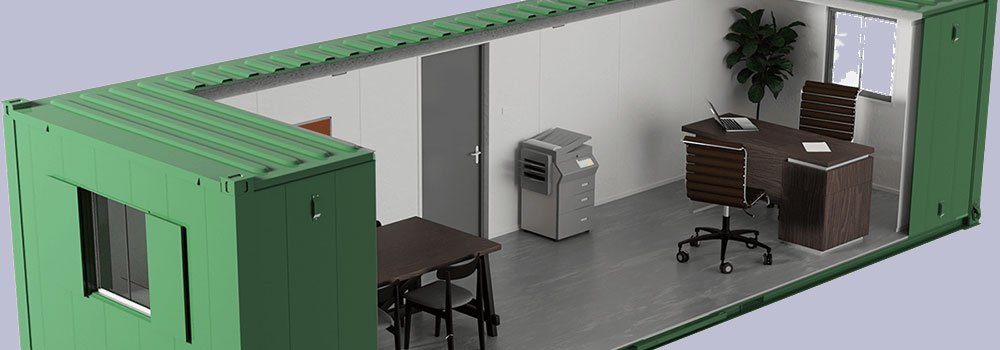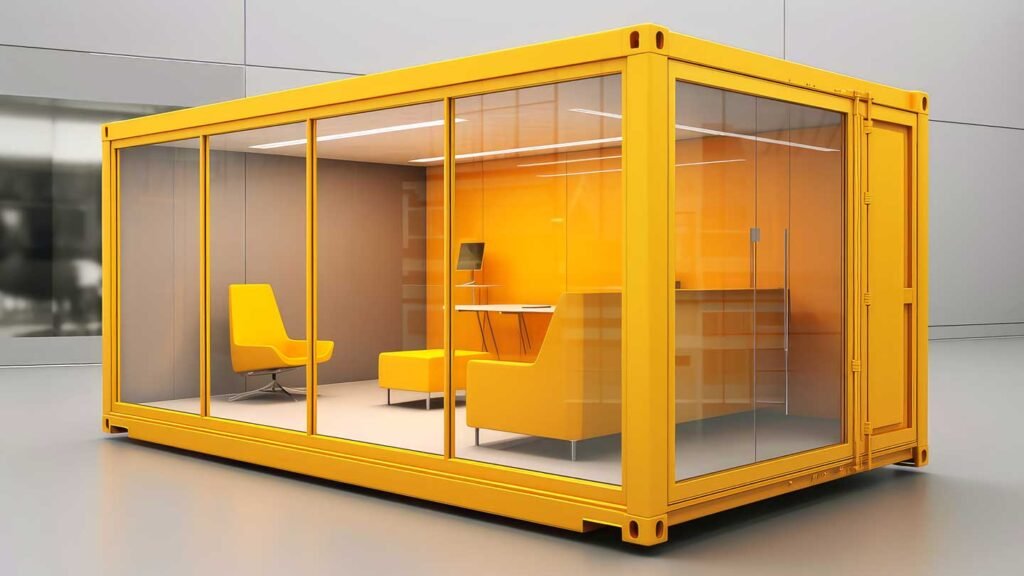The conventional workplace is transforming in this age of mobility and adaptability. The traditional workplace layout needs to be improved nowadays due to the rise of remote workers.
The brilliant idea of movable workplaces is to close the gap between home and office productivity. This essay explores the concept of mobile offices and how they may bring in a more flexible age of work.
Modular offices, movable trailers, and temporary booths are just a few examples of flexible workspaces that reflect the evolving nature of today’s workforce. So, continue reading before you look for construction job trailers for rent.
The Rise of Remote Work
The trend toward remote work among the world’s workforce is changing how we think about productivity. Traditional office layouts must be more suited to the modern workforce, which values a healthy work-life balance above all else.
Working from afar has many drawbacks, such as social isolation and a need for more organization. Workspaces that can be moved about are the best option. They enable working professionals to make any location a comfortable and efficient workplace.
This change isn’t being made for convenience alone but rather to meet the ever-changing demands of today’s workforce. As the lines between work and leisure continue to blur, mobile offices give the resources necessary to thrive in this new era.
Unveiling Portable Workspaces

To meet the needs of various businesses, portable workplaces comprise multiple products. Because of its adaptability and ease of installation, modular offices can transform any area into a hive of activity.
Construction sites and busy events alike might make use of mobile trailer offices. Pop-up shops and displays might find a temporary home in temporary booths. All of these choices have an elegant nature.
They liberate workers from the constraints of the traditional workplace and allow them to design their work environment. This independence isn’t confined to the workplace, and it’s been shown to inspire initiative and originality on the job.
Benefits Beyond Boundaries
The advantages of mobile offices go well beyond mere convenience. One of their defining features is their mobility; they can set up business anywhere there is a need. The ability to set up temporary work hubs benefits cooperation and supports distant workers.
Another advantage is the ability to save expenditures often associated with maintaining a permanent office location. Furthermore, working in various settings encourages new viewpoints and boosts innovation.
Employees with some say over their working environment are more likely to be surprised by the ideas that come to them. The flexibility of mobile offices allows workers to create an optimal setting for their specific requirements, boosting morale and output on the job.
Efficiency Redefined
Long construction and setup periods are a common source of disruption in conventional workplace layouts. This is not an issue while working from a portable desk.
Modular workplaces are easy to build and reconfigure. Now more than ever, ergonomics plays a central role as people take control of their working environments.
The option to uproot our lives without much fuss also changes how we adapt to new situations. Having a mobile office solves the problem of being tied down to one spot.
Real-world Success Stories
Many different sectors have already realized the advantages of mobile offices and construction job trailers for rent. Tech companies make use of their skill to expand rapidly. Companies in the construction industry now often set up business directly at the sites of ongoing projects.
When people have access to resources that help them thrive, they perform at a higher level. Innovation isn’t limited to technological advancements; mobile offices show that the actual work environment may be rethought.
Conclusion
In a world where everything is constantly shifting, mobile offices shine as a model of flexibility. They capture the spirit of the contemporary workforce and its commitment to change rather than just being a reaction to the rise of remote work.
Workspaces that can be moved about represent a shift from the fixed to the fluid. These areas reimagine what it means to go to work as companies try to stay competitive and as workers look for better work-life balance.
Adopting mobile offices isn’t only a wise tactical decision; it’s also an acknowledgment of the boundless promise of a future in which labor is no longer tied to fixed locations.



